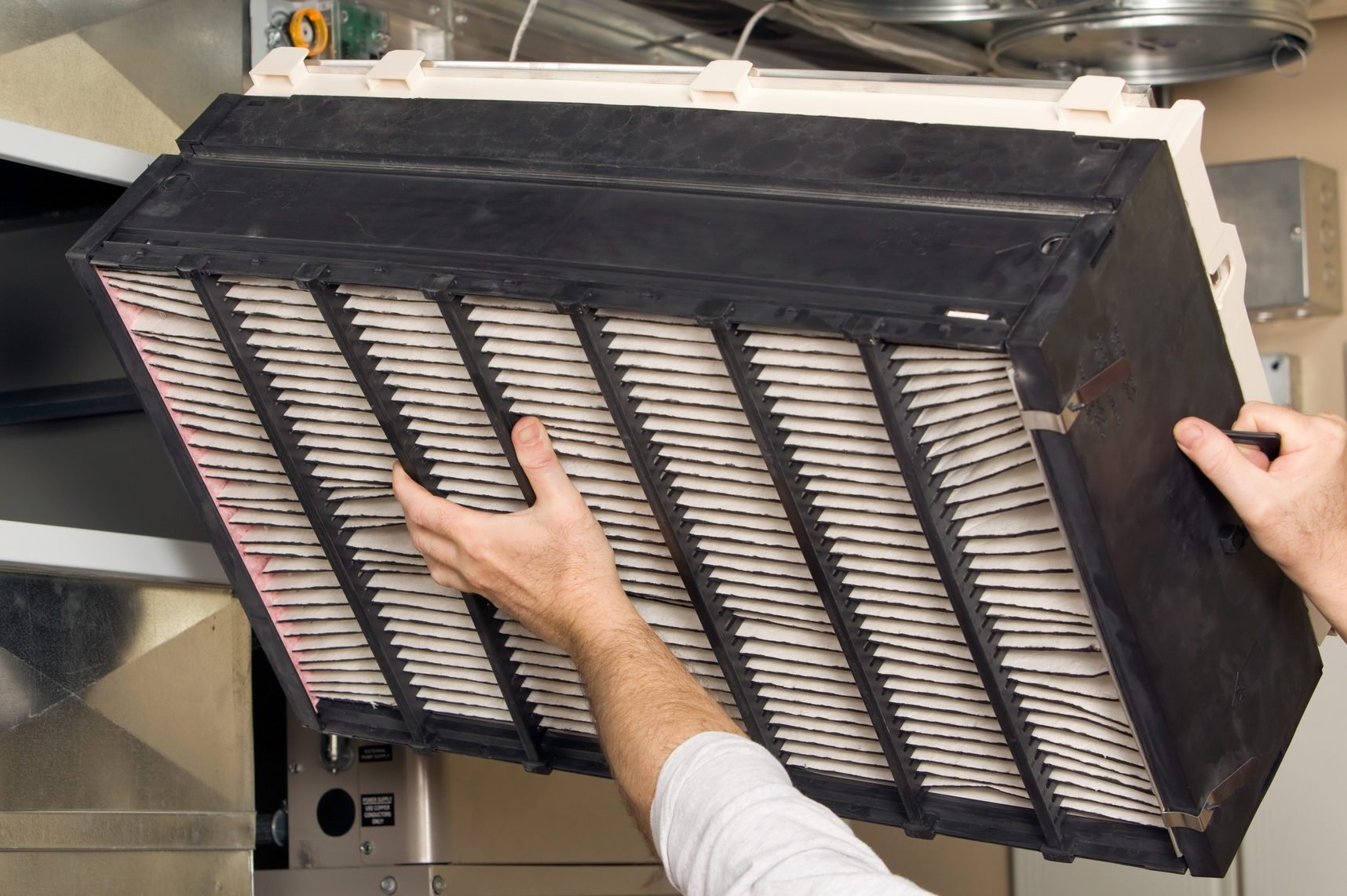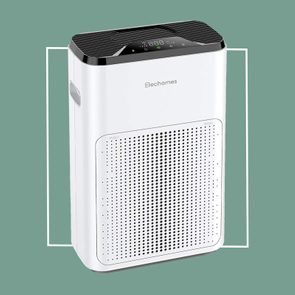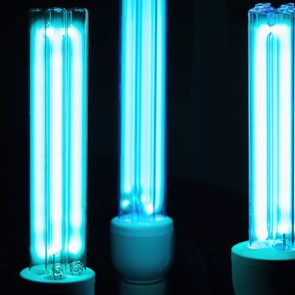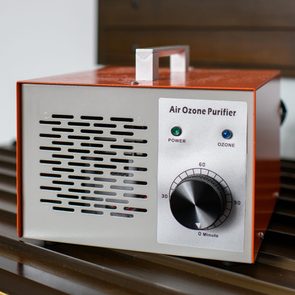Do You Need a Whole-House Air Purifier?
Updated: Mar. 01, 2021
Whole-house air purifiers can improve the indoor air quality of your home. Are they better than a personal air purifier? Here's what experts want you to know before you buy.
Why you might want a whole-house air purifier
Most people think of air pollution as an outdoor problem, but the air inside your home can be contaminated as well. Things like living near a freeway or industrial plant can increase the risk of particulate pollution in your home, says Emily Jones, a researcher in the Healthy Buildings program at Harvard University’s T.H. Chan School of Public Health, and that’s where a whole-house air purifier can help.
Inhalable particulate matter (PM) comes in sizes from 10 micrometers on down, with ones 2.5 and smaller posing the highest health risk. (For reference, 2.5 micrometers is about 100 times thinner than a strand of human hair.) Jones points out that PM2.5 has been linked to premature mortality, cardiovascular disease, and neurodegenerative diseases. “It’s not something that you want to be breathing especially high concentrations of,” says Jones.
“There are also all the indoor contributors of pollution, things like cooking on a stove, smoking, burning candles or incense,” says Patricia Fabian, an indoor air quality expert and associate professor in the School of Public Health at Boston University. The Environmental Protection Agency (EPA) also lists biological contaminants such as bacteria, molds, mildew, viruses, animal dander and saliva, house dust, mites, cockroaches, and pollen as contributors to poor indoor air quality.
(Learn how your messy house is making you sick.)
Personal vs. whole-house air purifiers
If you’re worried about the air quality in your home, you might be thinking about getting an air purifier, also known as an air cleaner. There are two main types of air purifiers: portable air purifiers, which are stand-alone units that plug into the wall, and whole-house air purifiers, which are typically connected to your HVAC (heating, ventilation, and air conditioning) system.
Personal air purifier
There are many advantages to a personal, stand-alone air purifier, says Jones. “Portable air cleaners are a simple plug-and-play solution,” she says. These types of air purifiers don’t require installation and can be run whenever you want.
Whole-house air purifier
Whole-house air purifiers, on the other hand, require professional installation. If they are connected to your HVAC system, they will only be filtering air when your air conditioning or heating system is on, or when your fan is running. According to the EPA’s Guide to Air Cleaner’s in the Home, HVAC systems are only operating about 25 percent of the time during heating and cooling seasons. Running the fan or running the heating and cooling longer can increase electricity costs.
Which is better for me?
Whether you would be better off with a personal air purifier or whole-house purifier depends on a number of things, including what you’re trying to filter, how much you want to spend, and whether you have an HVAC system already in your home.
“When you think about Covid, for example, what you’re trying to do is to control source emissions,” says Fabian. That is, you’re working to reduce the amount of virus in the air. “So then it would make sense to use a portable air cleaner in the room where the person with the virus is.” (Here’s how to manage a Covid-19 infection hot zone at home.)
If you’re looking into air purification because you or someone you live with has asthma, you might put a personal air purifier in the room the person with asthma sleeps. Alternately, Fabian says, “if pollen is a trigger, maybe it would make sense to have a whole-house purifier, because that you’re going to find pollen throughout the house.”
(Learn more about who really needs an air purifier.)

How much does a whole-house purifier cost?
Whole-house air purifiers are typically installed in the return air duct of your furnace, and costs vary from hundreds to thousands of dollars. Installation needs to be done by a professional and could include modifications to the HVAC system. Other costs to consider include maintenance, the cost of replacement filters, and operation costs such as electricity.
When it comes to residential air cleaners, the EPA says, “The most effective air cleaners, those with high air flow rates and efficient pollutant capture systems, are generally the most expensive.”
My furnace has a filter—is that enough?
The filter on your furnace is actually there to protect the furnace from dust and debris, not to improve your indoor air. “You don’t necessarily see high-quality filters just as a default,” says Jones. “It may not be removing a ton of the particles.”
(Here’s why you should avoid an ozone air filter if you’re looking to remove dust and debris.)
Upgrading your furnace filter
You can try to filter more particles by upgrading to a filter with a higher efficiency rating (known as MERV, or the minimum efficiency reporting value), but there are caveats. “How high efficiency of a filter you can use depends on your mechanical systems. For example, how strong the fan is,” says Fabian.
Risks of buying a furnace filter
Jones explains that if you buy a furnace filter with a higher efficiency rating at the hardware store and then proceed to install it in your home system, you may encounter some issues. Your home system may not have been built to push air through something that has much resistance, like a furnace filter. “It may generate so much pressure that you can end up reducing the efficiency,” she says.
Installing your own furnace filter can cause other problems, too. “You can have air leaking around the filter, which sort of defeats the purpose of having a filter in the first place,” says Jones.
Fabian says that most home furnaces should be able to support up to a MERV 13 filter. However, you should check with your furnace manual or an HVAC professional to be sure.
The last word
In the end, it’s up to you to decide if the cost and trouble of a whole-house air purifier is worth it. Speaking to an HVAC professional to see what the options are for your home is a good place to start. If you choose a personal air purifier, make sure it has a filter capable of removing small particles from the air. According to the EPA, HEPA filters can remove up to 99.97 percent of airborne particles, such as dust and pollen. Here are some other things to look for when buying an air purifier.
Next, here are the best NASA-approved air-cleaning plants to detoxify your home.


















